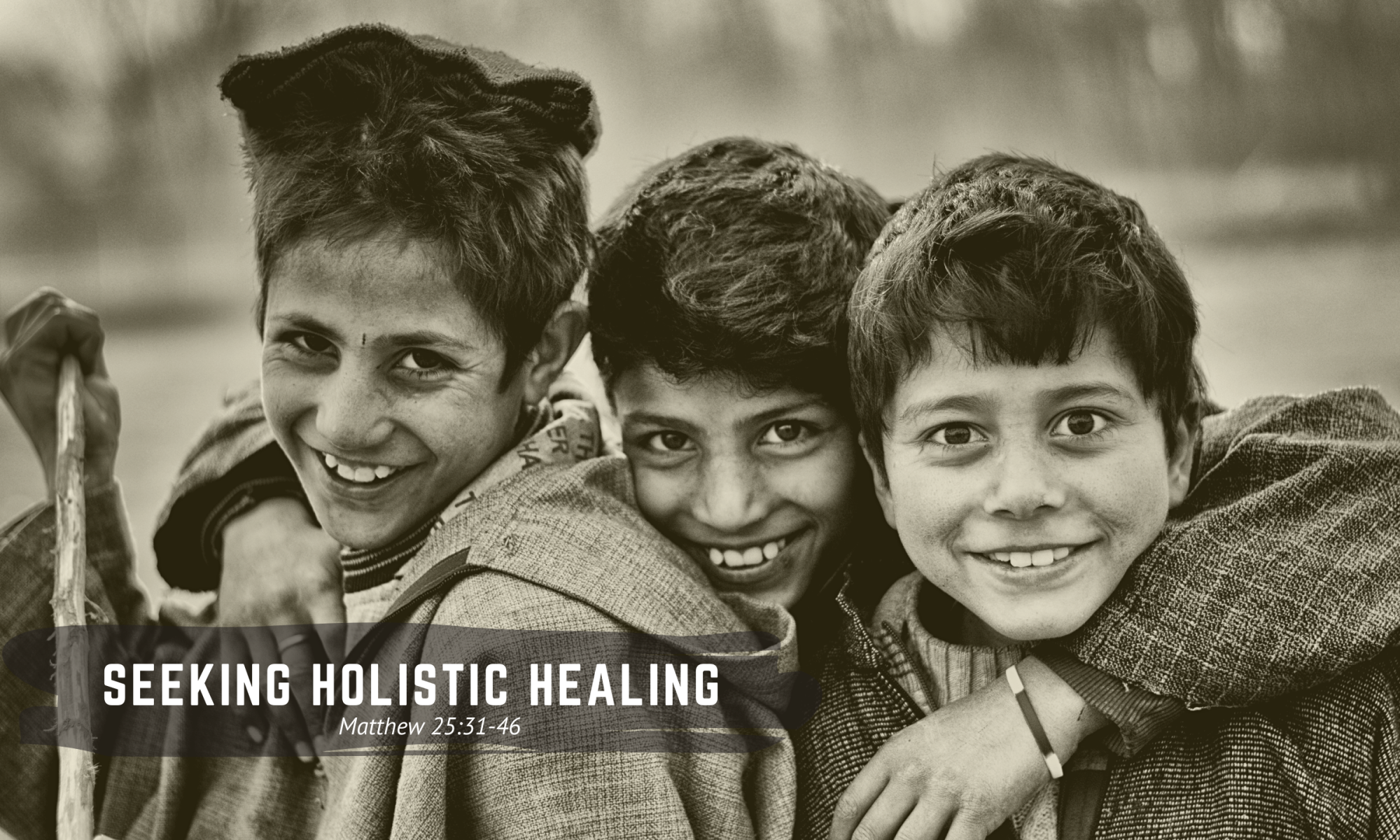I’m not sure when the “holiday season” starts these days. Is it mid-September when I actually saw Christmas items on some store shelves? Or maybe right after Halloween? In any case, it’s probably by the time Starbucks releases their long-awaited holiday-themed merch. When the holiday season does finally begin, two things come to my mind: meals and giving. In both cases, whether we’re hosting a meal or preparing gifts, we naturally ask our selves the question: “Is this enough?“
That question has permeated all of human history, including the history told in the Bible. And far too often, the world seems to shout back at us, “No! There’s isn’t enough!” And this is what makes Jesus’ life so baffling. In particular the fateful evening when he fed thousands of people using only enough for a few.
Having just been given the news of his cousin’s brutal and unjust execution, Jesus retreats, no doubt to grieve. But his grief would have to wait as thousands of needy people call on him. Led by compassion, he serves them until nightfall, when his friends state the obvious: they’re hungry, so let them go get dinner. Jesus’ responses are legendary:
“You give them something to eat.”
Surely in some disbelief, they remind him they have only enough for themselves. Then his second response:
“Bring it here to me.”
The rest is, as they say, history. So what was Jesus seeing that the disciples weren’t able to see? In short, that God created a world in which there is enough. The key is learning to experience it, and then give it away.
Jesus’ view of the world apparently resembles the Genesis 1-2 world: a world of overabundant resources, given by a loving Father. But that view was corrupted when the man and woman were deceived by the serpent. Remember, his deceptions were not generic, but rather laser-focused. First, he would plant the seed of mistrust: “Did God really say you could not eat…?” When that fails, he would plant the seed of envy: “That’s just because God didn’t want you to actually be in charge, to actually have the final say in your own life. I thought he put you in charge, but I guess not…” Mistrust and envy make a wicked fruit, and human beings have been eating it ever since.
But Jesus insists on undoing those lies and showing people the greater truth–a truth that will set us free from mistrust and envy, free to give of the overabundance of God’s world … free to give as God gives. Here are six basic principles I’ve gleaned out of today’s story, and the Bible overall:
Our Creator provides what we need. I know it sounds too simple, but this is where it starts. This is step one in telling the serpent to slither away! But do we really live like we believe it? Do we live like God will provide despite the circumstances, like he did through Jesus and Moses before him — bread to a hungry people in a remote place? (If you noticed that coincidence, good job; you’re supposed to notice it!)
Our Creator provides differently than the world expects. God might give us SOMETHING quite different than what we expected. How many testimonies include the phrase, “I never expected this to happen, but…” God might give TO SOMEONE who is different than we expected. Finally, the toughest one: God might give to someone MORE OR LESS than he gives you. Part of trusting God is refusing to judge what God gives, and to whom he gives it.
Our Creator does not guarantee that we’ll understand his provision. Back to the garden we go! The sin Adam and Eve commit is grounded in the hubris that comes with insisting that the Creator of the cosmos operate only at a level that we understand, or even more, that we approve of! But a so-called “god” whom I can fully comprehend is truly just a figment of my imagination.
Our Creator does guarantee that we will be an instrument for his provision. Yes, there is an intentional similarity between God provided bread in the desert with Moses and bread in this remote place with Jesus. But there is one crucial difference. In the Sinai desert, the manna appeared each morning on its own. But in the new covenant, the bread doesn’t just appear. God’s people give their own, and God multiplies it. Same God, same gift — new method. Why would God choose this method?
Our Creator does not need our money, but insists on our trust. In the words of Bono, “The God I believe in isn’t short of cash, mister.” Of course he isn’t. What God desires from us is our heart. The greatest commandment is not “Love the Lord with all your money.” It is, “Love the Lord with all your heart, mind, soul, and strength.” But here’s the thing. The one who created our heart, mind, soul, and strength, knows exactly what guides them. And so Jesus taught…
Our Creator gave us hearts that go where our treasure is. Note the order. Most fundraisers will try to appeal to your heart, so that you will then send your treasure that way. But Jesus teaches the opposite. Your treasure doesn’t go where your heart is — your heart goes wherever you send your treasure.
You want to invest your heart in things that pass away? So did Adam and Eve. But if you want to invest in that which will never pass away; if you want to take part in miracles; then listen to Jesus, as he says “Bring what you have to me.” And watch him multiply it, not only for others, but your transformation as well.
For reflection:
- Make a simple, bullet-pointed list of that which God has provided for you. Include material and non-material provision. Does anything surprise you?
- Of that which God has given you, what can be used to provide for those around you? Again, include material and non-material things.
- God calls us to be wise stewards of what we’re given. Are you giving to others (church, charity, etc.) in a way that you feel is wise?
- The feeding of the give thousand also calls us to be ready to give in a way that feels risky, even ridiculous. Do you ever give in a way that feels like this?
- What is one thing you could do to take a step out of “safe giving” and toward faith-informed “risky giving?”
- If your heart goes where your treasure is, do you manage your wealth in a way that directs your heart toward God, what God cares about, and God’s promise to take care of you?
- What is the interplay between providing for yourself, providing for your loved ones, providing for others in need, and relinquishing control of all your providing in the hands of God?











